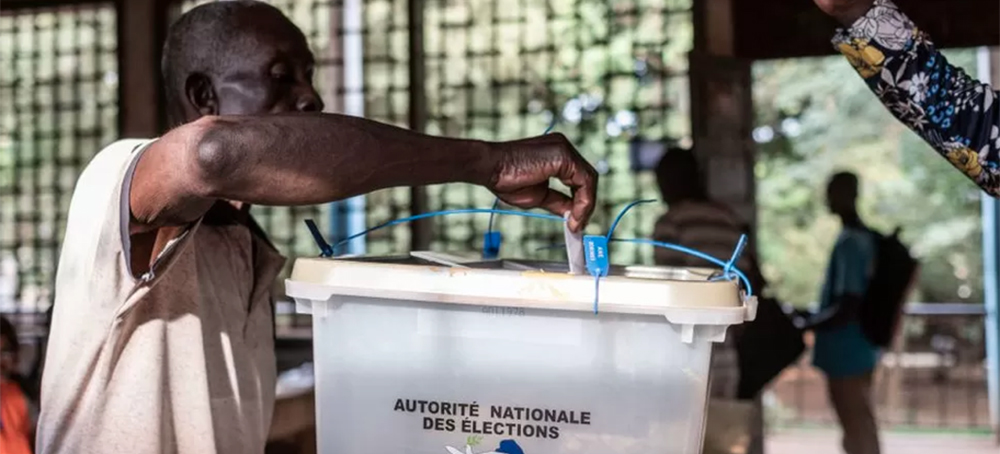Live on the homepage now!
Reader Supported News
American conservatives are taking cues from Hungary’s Viktor Orbán because elite education is a convenient enemy for authoritarian populists.
Orbán’s campaign against universities didn’t end with the CEU. First, he decapitated Hungary’s preeminent scientific institution, the Academy of Science, stripping it of its independent research institutes. Then he forced the privatization of a large part of Hungary’s own university system, packing its governing boards with party loyalists and pouring resources into the Mathias Corvinus Collegium, a new elite institution with the explicit task of providing a traditional and patriotic education for the Hungarian elite of tomorrow.
A larger project of geostrategic realignment was at work here. Having thrown out a U.S.-accredited institution, Orbán tried to replace it by offering a campus site on the Danube to Fudan University, a Shanghai-based institution that has recently acknowledged in its statutes the leading role of the Chinese Communist Party. He also took steps to distance himself further from NATO and the European Union.
As a young prodemocracy activist in 1989, Orbán was among the first to call for the repatriation of Soviet troops from Hungary. Three decades later, he has been an outlier among the leaders of NATO and EU member countries for his pro-Russian stance. Slow to condemn President Vladimir Putin’s invasion of Ukraine, Orbán has urged Ukrainians to seek a peace deal and barred arms shipments across the Hungarian border that would aid the Ukrainian war effort.
Instead of balking at Orbán’s courtship of autocrats or his eviction of a higher-education institution with U.S. accreditation, the Trump administration and its ambassador in Budapest offered only token resistance to the attack on the CEU, seemingly on the principle that any enemy of Soros had to be a friend of theirs. Since 2019, foreign conservatives have been flocking to Budapest to sit at the feet of the Hungarian master. Some of them, such as Canada’s former Prime Minister Stephen Harper, just seem naive. Ostensibly seeking closer international ties between parties of the right, they seem to want to believe that, like them, he is a constitutional conservative—when he is, in fact, the authoritarian boss of a one-party state.
Others know exactly who he is, and that’s what attracts them: his despotic machismo. The list of American supplicants to the Orbán court includes political figures such as Mike Pence and Tucker Carlson, and right-wing intellectuals such as Rod Dreher, Christopher Rufo, and Patrick Deneen. The U.S. Conservative Political Action Conference has held one of its meetings in Budapest, and Orbán was invited to be a keynote speaker at the group’s conference in Dallas last year.
American conservatives are not alone in harkening to the music from Budapest. Orbán’s systematic dismantling of liberal institutions in Hungary has made him the titular head of a global national-conservative movement, which currently includes Giorgia Meloni of Italy, Marine Le Pen of France, Santiago Abascal of the Vox party in Spain, Jaroslaw Kaczynski of Poland’s Law and Justice party, Benjamin Netanyahu of Likud in Israel, the far-right Sweden Democrats party, and now America’s MAGA Republicans. Each of these right-wing populists takes what they like from Orbán’s menu. Among its ingredients are a fantasy theory that liberals rule the world, a values campaign that denies gay men and women a place in the family, and protectionist economic policies that transfer public assets to party insiders. Add to this one-party rule that dismantles checks and balances, a politics that defines all opponents as enemies of the nation, and a vision of cultural struggle that identifies schools and universities as a crucial battleground for the control of future generations.
All together, this has made an intoxicating cocktail for 21st-century conservatives. The conservative task, Orbán proclaims, is nothing less than reversing the decline of the West. The hour is late. Godless liberalism, hedonism, permissiveness, and cosmopolitanism have done their fatal work. Decadence is at an advanced stage. At a party gathering in July, he thundered, “Today, ‘Western values’ mean three things: migration, LGBTQ, and war.” The idea that Western values might also include helping a democracy repel an invasion is as foreign to Orbán as it is to some far-right American conservatives.
The germans have a word for this: Kulturkampf. Orbán’s appeal to American conservatives is that he understands politics as a struggle for cultural hegemony. It may be odd to think of American conservatives becoming followers of Antonio Gramsci, the Italian Marxist who made winning hegemony central to his conception of political strategy, but they share a view of universities as axes of influence. Whoever has cultural hegemony, they believe, will secure political hegemony.
This is a far-fetched idea, by the way. Does anyone, of whatever political stripe, have any hope of exercising cultural hegemony in a country as wildly, exuberantly varied and divided as America? Nevertheless, the goal of cultural hegemony appears to be what drives Governor Ron DeSantis’s focus on gaining control of the Florida education system; rewriting the school curriculum on Black studies and other subjects; firing diversity, equity, and inclusion officers; and giving university trustees the power to review and dismiss tenured faculty in the state system. It also explains the importance DeSantis attaches to his recent takeover of New College, a respectable but little-noticed liberal-arts institution in Sarasota. In January, he packed the board of trustees with his appointees, who imposed a new management team, and dismissed the president—all in service of reinventing the institution as a Christian conservative bastion in his battle against “woke” ideology.
Why would a Republican presidential candidate waste political capital shaking up a small liberal-arts college, and how have universities’ curricula and administration become another battleground for the soul of America? Unlike former President Donald Trump, who doesn’t seem to care much about these issues, DeSantis seems obsessed with controlling the sector—betting everything on this struggle for cultural hegemony.
In this regard, he is Orbán’s disciple. In Budapest, the CEU was a small, research-oriented social-science and humanities graduate school—hardly a thorn in the side of the Orbán regime, you might think. But that would be to misunderstand how Orbán saw us. To him, our university made a valuable symbolic target in his effort to fashion himself as a conservative culture warrior, fighting back the supposedly tentacular influence of liberal cosmopolitanism. Once universities are framed in this way, they become irresistibly attractive to self-promoting demagogues.
Universities have another crucial feature: They are vulnerable to populist attack. New College in Florida is a small institution, with loyal alumni to be sure, but hardly a powerhouse of political clout. It’s the kind of institution that would have had Stalin ask, archly, How many divisions does it have? The same was true of the CEU. It had some cultural capital, as George Soros’s émigré legacy in Eastern Europe, but Orbán realized that the CEU, as a small American-accredited institution operating in a foreign country with a growing but modest alumni base, was a sitting duck. These demagogues are too clever to pick a fight with someone their own size.
For this sort of right-wing populist, attacking colleges and universities also mobilizes the resentments of people who never went to university and may dislike, often justly, the entitlement that a college degree can confer on its beneficiaries. If a crucial component of the Trump-era Republican electorate comprises people who may not have graduated from high school, then an attack on universities is pure gravy for the demagogue. Similarly, for these angry voters, the downside of such an attack—weakening the scientific, technical, and cultural innovation that universities make possible—does not carry much weight.
Jacob Heilbrunn: Behind the American right’s fascination with Viktor Orbán
Finally, and perhaps most important of all, Kulturkampf attacks on universities are both definitional, in the sense of the leader’s brand, and diversionary. If a leader were serious about addressing the resentments of an excluded voter base, he wouldn’t focus on universities at all. Instead, he’d take a hard look at the power of corporations, their tax rates and tax avoidance, and their offshoring of jobs, not to mention their overwhelming control of the digital public sphere. That leader would look at the incomes of the richest citizens and see what could be done to transfer some of that wealth to improve schools, hospitals, clinics, and other public goods that give people, especially those without a college education, a fair start in life. But it’s so much easier to target universities and their supposedly cosseted liberal professors than to tackle the perquisites and power of the corporate-donor class that funds his campaigns.
Orbán is a master of such diversionary politics, happily courting liberals’ denunciations for his attacks on academic freedom while patiently getting on with his core business—which is to use state power to enrich his supporters. He once confessed to a friend of mine, a banker, that he had a lot of mouths to feed: He knows, as do other autocrats such as Putin and Turkish President Recep Tayyip Erdoğan, that feeding friends is how authoritarians hold on to power.
Six years after Viktor Orbán started his campaign against the CEU, the conservatives who imitate him have grasped how convenient it is to make universities your enemy. These attacks on university autonomy and academic freedom—in U.S. states, in Narendra Modi’s India, and in Erdoğan’s Turkey—are principally about one thing: systematically weakening any institution that may act as an obstacle to authoritarian power. Although American conservatives, no less than their autocratic counterparts abroad, consistently portray their attacks on universities in pseudo-democratic terms—as attempts to protect the silent majority from the ideological hectoring of the liberal elite—their real agenda is to weaken democratic checks and balances.
Universities are not usually understood, and even more rarely defended, as guardrail institutions that keep a democracy from succumbing to the tyranny of the majority, but that is one of their roles: to test, criticize, and validate the knowledge that citizens use to make decisions about who should rule them. Because this is the universities’ democratic rationale, the message for those who want to defend them should be clear. So long as academic freedom is considered a privilege of a liberal elite, it has no constituency beyond academia. Liberals should defend academic freedom not as the privilege of a profession, nor to preserve universities as bastions of progressive opinion, but because universities—like courts, a free press, and independent regulatory bodies—are essential restraints on majoritarian rule that keep us all free. That was precisely what the citizens of Budapest understood when they marched past the CEU’s doors, chanting, “Free country, free university.”
READ MORE  Donald Trump. (photo: Thomas Levinson/The Daily Beast/Getty Images)
Donald Trump. (photo: Thomas Levinson/The Daily Beast/Getty Images)
A number of Donald Trump’s current aides are involved in the latest case against their boss. That could put them in some very difficult positions.
“Most of us look at the January 6th stuff as the most concerning,” one Trump confidant told The Daily Beast. “There is real concern this must be handled perfectly.”
Two Trump advisers who spoke to The Daily Beast agreed with that analysis, though aides seem to separate Trump’s political and legal problems.
“Sure, yes,” one adviser said of this indictment being the most serious. “But it’s also the one he may be able to criticize as impossible to get a fair trial.”
While Trump characteristically took the charges and orders from a judge to not communicate with any potential witnesses less than seriously—he almost immediately posted on Truth Social that, “IF YOU GO AFTER ME, I’M COMING AFTER YOU”—his aides tried to clean up those remarks quickly.
“The Truth post cited is the definition of political speech, and was in response to the RINO, China-loving, dishonest special interest groups and Super PACs,” an anonymous Trump spokesperson said, “like the ones funded by the Koch brothers and the Club for No Growth.”
A Trump spokesperson didn't respond to a request for comment on this story.
Although Trump’s orbit often has opinions divorced from reality, legal experts seem to agree these charges are the most serious.
But perhaps more interesting than their opinions aligning with the truth of the situation is that many current and former aides could play a part in a potential trial.
The Washington Post identified over the weekend at least seven current aides who are mentioned prominently in at least one of his indictments. In this newest charging document, there are six co-conspirators—five of them have been identified, and The New York Times strongly suggested Friday that the sixth was another current top aide.
That could make Trump’s campaign more than awkward for a number of advisers.
Another Trump confidant who routinely speaks to the former president said the speed at which the case is moving has left those inside Trump’s orbit nervous about having to turn against the boss, possibly during the campaign.
“You’re not going to be able to put your big toe in the water,” this source said of Trump aides cooperating without really cooperating. “The whole leg and body goes in. The prosecution will not allow them to dance in the margins.”
In all of Trump’s indictments and investigations, aides have played a prominent role in providing damning depositions—whether they’ve meant to or not.
Hope Hicks, for instance, already told the Jan. 6 Committee that Trump thought lawyer Sidney Powell’s election fraud theories were “crazy.”
But in this case, with co-conspirators and more potential charges looming on a quick timetable, the Trump confidant didn’t see how the former president’s aides could navigate cooperating while not actually being helpful to the prosecution.
“You either shut up completely or you spill,” this Trump source said.
While all of the cases could be trouble for Trump, this new case has another wrinkle that makes it the most serious for the former president: timing.
Trump has already been able to push off the documents case with the help of a judge he appointed. And in the Manhattan DA case, where Trump faces 34 felony counts of falsifying business records, the judge has set a trial date of March 25, 2024. Many experts, however, think Trump’s team could push that back or potentially get the whole thing delayed because Trump could be the presumptive GOP nominee by then.
Meanwhile, federal prosecutors in D.C. are trying to go to trial in three months, and the judge overseeing the case is supposed to set a trial date on Aug. 28—just three weeks away.
The judge has also shown little patience for Trump’s usual antics or his lawyers’ patented dilatory tactics.
The DOJ quickly filed a protective order on Friday after Trump’s Truth Social post seeming to threaten anyone who goes after him. The protective order would limit what Trump could share publicly about his case.
Trump’s lawyers wanted more time to respond to the protective order request, hoping to push it back from a Monday hearing. But the judge ruled over the weekend that Trump’s lawyers only had until Monday at 5 p.m. to respond.
All of these orders and motions usually take days or even weeks. In this instance, it all happened over the weekend.
Trump is also seeking to move the trial out of D.C. and into West Virginia, where he won in 2020 by nearly 30 points. But other defendants in Jan. 6 cases have repeatedly tried that tactic, arguing they can’t get a fair trial in D.C. because the Capitol riots touched so many people’s lives there—directly or indirectly. Not a single defendant has been successful in getting their trial moved.
Still, Trump is likely to argue from a public relations standpoint that all of these factors—the forum of the case, the quick timing, the fact that it’s Joe Biden’s DOJ going after him—point to him not being able to get a fair trial.
“That court is so backed up and slow with everything that it would look nakedly political for them to expedite this, let alone have cameras in the courtroom,” one Trump adviser told The Daily Beast. “Trump derangement syndrome isn’t enough to make exceptions.”
But it’s not just the timing and his motions getting shot down that are angering Trump. Following his Thursday arraignment, CNN reported the ex-president was particularly irked by the judge referring to him as “Mr. Trump” instead of “President Trump.” (Both at his Mar-a-Lago resort and Bedminster golf club, aides and allies continue to refer to Trump as the president.)
Trumpworld continues to project confidence that he will, once again, be president, citing Trump’s sustained poll numbers atop the GOP field.
In Trumpworld, some Trump allies have suggested that, politically, it would be in Trump’s interest to have multiple indictments instead of merely one indictment.
Jackson Lahmeyer, founder of Pastors for Trump, told The Daily Beast that the more indictments of the ex-president, the better.
“I think at some point it becomes laughable,” he said. “The more, the merrier at this point.”
But one of the advisers disagreed strongly.
“No,” one of the previously mentioned advisers said when asked if the more indictments, the better. “Of course not.”
READ MORE  George Floyd's killing in May 2020 set off mass racial justice protests across the globe. (photo: Morry Gash/AP)
George Floyd's killing in May 2020 set off mass racial justice protests across the globe. (photo: Morry Gash/AP)
Former US Police Officer Sentenced for Role in George Floyd’s Killing
Al Jazeera
Excerpt: "A former Minneapolis police officer has been sentenced to nearly five years in prison for his role in the killing of George Floyd, whose death in 2020 set off racial justice protests across the United States and the world."
Tou Thao, convicted in state court for involvement in 2020 killing, sentenced to nearly five years in prison.
Tou Thao, the last former Minneapolis police officer convicted in state court for his role in Floyd’s killing, was sentenced to four years and nine months on Monday.
“I was hoping for a little more remorse, regret, acknowledgment of some responsibility,” Hennepin County District Judge Peter Cahill said before handing down the sentence.
Thao had testified that he merely served as a “human traffic cone” when he held back concerned bystanders who gathered as another former Minneapolis officer, Derek Chauvin, knelt on Floyd’s neck for more than nine minutes in the fatal incident on May 25, 2020, in the northern state of Minnesota.
In May, Cahill found Thao guilty of one count of aiding and abetting manslaughter in the second degree for his role in the killing, which was captured on bystander video.
In his 177-page ruling, Cahill said Thao’s actions separated Chauvin and two other former officers from the crowd, including an emergency medical technician, allowing his colleagues to continue restraining Floyd and preventing bystanders from providing medical aid.
“There is proof beyond a reasonable doubt that Thao’s actions were objectively unreasonable from the perspective of a reasonable police officer, when viewed under the totality of the circumstances,” Cahill wrote.
The judge concluded: “Thao’s actions were even more unreasonable in light of the fact that he was under a duty to intervene to stop the other officers’ excessive use of force and was trained to render medical aid.”
Minnesota Attorney General Keith Ellison and other prosecutors handling the case had asked the judge to sentence Thao to 51 months in prison.
Thao had rejected a plea bargain on the state charge, saying “it would be lying” to plead guilty when he did not think he was in the wrong.
He instead agreed to let Cahill decide the case based on evidence from Chauvin’s 2021 murder trial and the federal civil rights trial in 2022 of Thao and former officers Thomas Lane and J Alexander Kueng.
“I didn’t intend on doing any malice or … try hurt anyone. That was never my intent. I did the best that I thought I could,” Thao said in court before he was sentenced.
Lawyers for the former officer were not immediately available for comment on Monday, the Reuters news agency reported.
Chauvin, the officer captured on cellphone video kneeling on Floyd’s neck as he pleaded for help and repeatedly said, “I can’t breathe,” was found guilty of murder in 2021.
The other two officers, Lane and Kueng, restrained Floyd’s knees and hips while Chauvin knelt on his neck.
Last year, Lane and Kueng pleaded guilty in state court to aiding and abetting second-degree manslaughter. Lane was sentenced to three and a half years in prison while Kueng was sentenced to three years.
At a federal trial last year, Kueng and Lane were also found guilty of violating Floyd’s civil rights.
Lane was sentenced to two and a half years and Kueng to three years in federal prison, to run at the same time with the state sentence.
Chauvin was sentenced to 22 and a half years in state prison for the unintentional second-degree murder of Floyd. Last year, he received a concurrent sentence of 21 years in prison on federal charges of violating Floyd’s civil rights.
READ MORE  Svitlana Sushko. (photo: Ukraine)
Svitlana Sushko. (photo: Ukraine)
Both the city of Kherson and parts of the Kharkiv region are directly adjacent to the front line. The Ukrainian military has reported increased Russian attacks in the Kharkiv region in recent days.
"A difficult night for Kherson ... The Russian army continued to shell Kherson residents' homes in the central part of the city," governor Oleksandr Prokudin said on the Telegram messaging app.
Prokudin said the shelling had started around midnight and lasted for several hours.
Separately, the head of Ukraine's presidential office, Andriy Yermak, said on Telegram that two civilians had been killed and three others wounded during Russian shelling of border areas of Kharkiv region on Monday morning.
Reuters could not independently verify the details of the Ukrainian reports.
Ukraine recaptured Kherson city and parts of the Kherson region in November after months of Russian occupation, but Russian forces regularly shell the city and surrounding areas from across the Dnipro River.
This month a doctor was killed and five medical workers were wounded in Russian shelling of a Kherson hospital.
Russia denies deliberately targeting civilians or hospitals during its invasion of Ukraine, which is now in its 18th month and has resulted in the deaths of thousands of people, the uprooting of millions and the destruction of Ukrainian towns and cities.
READ MORE  Newly arrived migrants receive information, snacks, clothing and other items from local Brownsville nonprofits after being released by U.S. immigration officials at the border crossing in Brownsville, Texas on July 1, 2023. (photo: Meridith Kohut/WP)
Newly arrived migrants receive information, snacks, clothing and other items from local Brownsville nonprofits after being released by U.S. immigration officials at the border crossing in Brownsville, Texas on July 1, 2023. (photo: Meridith Kohut/WP)
The 2-1 decision granted a reprieve to the Biden administration, which feared losing a critical border management tool next week.
Judges William A. Fletcher and Richard A. Paez stayed a lower court’s ruling that would have terminated the asylum restrictions on Aug. 8 as the administration is struggling with rising numbers of migrants arriving at the southern border. The judges said they would consider the appeal on an expedited schedule, at least through September, and possibly longer.
The majority judges did not explain their decision but it inspired a blistering dissent from the third judge on the panel, Lawrence VanDyke, who said the 9th Circuit had shot down Trump administration immigration policies while allowing Biden’s to remain in place.
The 9th Circuit’s decision stayed a ruling by U.S. District Judge Jon S. Tigar. He issued a ruling July 25 saying that the restrictions violate federal law that says anyone fleeing persecution may request asylum once they set foot on U.S. territory. Tigar’s decision was scheduled to take effect Tuesday.
The Biden administration had said that if the restrictions were lifted, it expected a surge of potentially tens of thousands of migrants to the border that would have overwhelmed the immigration system.
“We will continue to apply the rule and immigration consequences for those who do not have a lawful basis to remain in the United States,” Department of Homeland Security spokeswoman Erin Heeter said in a statement Thursday after the appeals court ruled. “We encourage migrants to ignore the lies of smugglers and use lawful, safe, and orderly pathways.”
The Biden administration imposed temporary limits on migrants seeking asylum in May as it ended a pandemic policy known as Title 42, which had allowed border officials to rapidly expel migrants to Mexico and other countries without a hearing. The restrictions are a mix of incentives and penalties meant to steer migrants away from the border and toward legal pathways into the United States.
The restrictions penalize asylum seekers if they crossed the southern border illegally or failed to apply for protection in another country, such as Mexico. Migrants must schedule an appointment via an app to request asylum or have a sponsor in the United States invite them into the country. Anyone who does not follow the rules could be deported or face criminal prosecution for entering the country illegally.
In his dissent, VanDyke signaled that it appeared that the appeals court was treating Biden differently from President Donald Trump, who sought to restrict immigration. VanDyke wrote that, in 2018, Tigar blocked the Trump administration from denying asylum to migrants who crossed the southern border illegally and the 9th Circuit refused to stay that decision.
VanDyke wrote that Biden’s asylum restrictions were so similar to the Trump administration’s that it looks like they “got together, had a baby, and then dolled it up in a stylish modern outfit, complete with a phone app.”
Biden administration lawyers rejected comparisons to the Trump administration, saying they were not barring migrants from requesting asylum.
In their appeal, Biden administration officials said lifting the restrictions would produce a “policy whipsaw” at a time “of enormous uncertainty and upheaval in international migration patterns.”
As of mid-June, more than 100,000 migrants were in northern Mexico within an eight-hour drive of the U.S. border, officials said in the appeal. Once the restrictions are lifted, migrants could attempt to cross and overwhelm the immigration system.
Officials credited the new system for a dramatic drop in border apprehensions. U.S. agents made 99,545 apprehensions along the Mexico border in June, the lowest monthly tally since February 2021.
In July, however, border crossings jumped more than 30 percent, partly because of large groups of migrants from Mexico, Central America and Africa crossing through the deserts in Arizona.
Advocates for immigrants, who filed a legal challenge to the asylum restrictions, disputed the government’s predictions that ending the restrictions would provoke a dramatic increase in migrants crossing the border.
The American Civil Liberties Union and other groups, which had argued against the restrictions in court, said the 9th Circuit’s decision said nothing about the legality of the restrictions.
“We are confident that we will prevail when the court has a full opportunity to consider the claims,” Katrina Eiland, the ACLU lawyer who argued the case, said in a statement. “We are pleased the court placed the appeal on an expedited schedule so that it can be decided quickly, because each day the Biden administration prolongs its efforts to preserve its illegal ban, people fleeing grave danger are put in harm’s way.”
Attempted border crossings surged in early May before the Title 42 policy ended, but advocates said that influx was an anomaly triggered by the policy shift. They worried that thousands of migrants were awaiting appointments in dangerous locations, such as border cities in Mexico, where migrants have been targets for kidnapping for ransom and rape.
Federal officials had planned to leave the asylum restrictions in place for two years because the immigration system is overwhelmed, in part because Congress has not updated immigration laws in decades.
For many migrants, seeking asylum is the only way to get into the country. Most migrants do not qualify for that protection, court records show, but the immigration docket is so backlogged that they end up living and working in the United States for years until judges can issue decisions in their cases.
To apply for asylum, a migrant must have a fear that they will face persecution in their native country because of their race, religion, nationality, political opinion or another trait that makes them a target.
READ MORE  Critics are calling it a constitutional coup. (photo: Getty Images/BBC)
Critics are calling it a constitutional coup. (photo: Getty Images/BBC)
A referendum allowing the president of the Central African Republic (CAR) to run for office as many times as he likes has been labelled a farce by opponents.
CAR is still in the throes of a civil war that has uprooted a third of all people from their homes.
President Faustin-Archange Touadéra is backed by Russian Wagner mercenaries.
Extra fighters arrived ahead of the referendum to provide security.
Wagner forces have been accused of committing war crimes as they back President Touadéra in the fight against rebel groups who still control large swathes of the country.
They reportedly trade in the minerals and timber industries.
The proposed new law would scrap the current two-term limit and extend the presidential mandate from five to seven years.
It would also ban politicians with dual citizenship from running for president unless they renounce the other.
Campaign group Human Rights Watch says this stirs up memories of anti-Balaka militias who targeted Muslims for their perceived association with Séléka rebels in the 2013 conflict, which saw hundreds killed in a civil conflict that continues to this day.
Opposition parties and some civil society groups boycotted the referendum vote on 30 July, calling it a "constitutional coup" designed to keep President Touadéra in power for life.
They also say the election process lacked transparency and there was not enough consultation beforehand.
Under the changes, a new post of vice-president would be created, who would be appointed by the president. The Senate would be scrapped and parliament would be transformed into a single chamber.
The president and members of his United Hearts Party say they are following the "will of the people".
Final results have yet to be published by the election authority.
READ MORE Bacon. (photo: Paige Vickers/Vox)
Bacon. (photo: Paige Vickers/Vox)
The pork industry’s forced cannibalism, explained.
“It was brutal,” the investigator, who requested anonymity due to the covert nature of undercover investigations, told Vox. “They’re all really bad,” they said, referring to other investigations they’ve conducted, “but this one looked like a house of horrors.”
In one clip, a pregnant pig who got stuck between two pens and died is sawed in half. “Anyone want some ham?” one worker joked. “Ripped that bitch wide open,” another said. Animal Outlook’s investigator alleged that employees could’ve easily freed her before she died, but didn’t.
Male piglets at the farm have their tails cut off and testicles ripped out by hand without anesthesia or pain relief, both standard practices in the industry. The investigator filmed employees tossing the testicles at each other and at a wall that was covered in them. In another scene, a pregnant pig’s uterus has prolapsed, a painful condition that’s more common in older female breeding pigs, known as sows, who typically give birth to larger litters than younger sows. In the video, she’s herded down a hallway to be euthanized — shot in the head with a captive bolt gun — with her insides dangling to the ground. The investigator alleged this happened to between one and three pigs every day.
Sick and injured piglets on the farm are placed into a small black box to be euthanized with carbon dioxide poisoning, but some survive and are seen gasping for air amid a pile of dead piglets. In one instance captured on video, an injured piglet needed to be euthanized, but a supervisor appeared to say it wasn’t worth running a gassing cycle for just one animal, so he left the piglet to suffer overnight until there were more piglets that needed to be euthanized.
“That feels good,” one worker says in another clip, after repeatedly striking a pregnant pig with a paddle while trying to move her from one area to another.
Such cruelty could stress out other pigs who witness it, as research suggests pigs feel empathy for one another when in distress.
Animal Outlook’s investigation took place at a 3,300-sow breeding facility run by Holden Farms, a pork producer which, as of 2017, raised pigs for some of the world’s largest meat companies: Tyson Foods, JBS, and Triumph Foods. It’s an understatement to say the footage conflicts with Holden Farms’ approach to animal welfare stated on its website: “Do what’s best for the animal and practice the best animal husbandry skills possible.”
Holden Farms declined an interview request for this story. Tyson Foods, JBS, and Triumph Foods did not respond when asked if they currently supply pigs from Holden Farms.
(After the investigation concluded in early 2020, Animal Outlook took its findings to local enforcement and requested charges be brought against Holden Farms, Inc., its management, and several of its employees under the state’s animal cruelty laws. The statute of limitations has expired and no cruelty charges have been brought, so Animal Outlook is now releasing its findings to the public.)
It’s tempting to write off Holden Farms and some of its employees as bad apples, but the practices documented are customary in pork production, and the malicious abuse — the kicking, punching, and hitting — is found in investigation after investigation after investigation into the meat industry.
One of the more stomach-churning clips in Animal Outlook’s footage shows a practice that’s rarely been captured in other pork industry investigations. Employees can be seen removing the intestines of dead, disease-infected piglets and mixing them with piglet feces in a blender — a mixture to be fed to the adult breeding pigs — causing one worker to gag.
The practice, called “feedback,” is common in the pork business (or “controlled oral exposure” in industry jargon). The slurry of pig poop and parts is often fed to new female breeding pigs who’ve yet to give birth to help them adapt to the germs of the farm, and to pregnant pigs to help them pass down immunity from disease to their babies, through their milk.
Animal Outlook’s investigator said the farm had begun using feedback because some piglets were getting sick with diarrhea, losing weight, and their skin was turning from pink to a grayish hue.
Why the pork industry feeds feces and raw intestines to pigs
To drive down costs, the meat industry relies on practices that can increase the spread of disease, like overcrowding and intensive breeding, which can trigger the need for gruesome practices like feedback to work around the problems it’s created.
It might make you lose your appetite, but many in the pork industry say feeding pigs what amounts to a smoothie of feces and intestines reduces the spread of disease on farms when there isn’t an effective vaccine available (though some recommend using it in addition to vaccines). And disease is a big deal on farms. Around one-third of pigs die before they ever reach the slaughterhouse, leading to enormous suffering for animals and significant losses for the producers, as they breed more pigs to make up for the early deaths.
Cesar Corzo, an associate professor of swine health and productivity at the University of Minnesota, defends the practice, comparing feedback to childhood chickenpox parties. Before the chickenpox vaccine came to market in 1995, parents would often bring infected kids together with uninfected kids, on the grounds that they would be better off contracting the disease as children than as adults. (Public health experts now recommend against intentionally infecting kids with disease in lieu of vaccination.) The same rough idea is at play in feedback.
“Those [piglets], when they come out into the world, if they happen to see some virus or some bacteria, they’re prepared to fight against it,” Corzo said. “We know that that works really well.”
Research into pig feedback began in the 1950s, and it’s since come into wide use. Some pig researchers say that while feedback has clear benefits in fighting, for example, PEDv — a virus that caused hundreds of millions of dollars in economic loss to the pork industry a decade ago — it can be risky, and there’s no standard protocol. As a result, there’s a lot of variability in its deployment, with inconsistent outcomes.
Other industry experts say the way feedback is usually practiced is inefficient and unsafe. Corzo said there are efforts underway to standardize its use.
Jim Reynolds, a bovine veterinarian in California who’s also worked with pigs and specializes in epidemiology, said the practice makes sense in theory, but he doesn’t recommend it in part because it risks exposing animals to unintended diseases.
“If you’re grinding up dead things and feeding them to the not sick things, that’s a bad idea. That’s bad biosecurity,” he said. “It’s intentionally spreading pathogens… Hopefully, it’s just the one you want. It might be another one.”
Reynolds and others argue that many of the industry’s health and welfare issues boil down to overcrowding. Farms should “decrease the stocking densities to reasonable levels” to minimize disease spread, he said.
From a consumer perspective, the debate over whether or not feedback is worth the risk may be largely irrelevant. That much was evident in the early 2010s fight over so-called pink slime, a mix of meat scraps processed with chemicals meant to kill bacteria, that was turned into filler for beef products. It’s safe to eat but repulsed the public, leading fast food chains to swear off its use.
While feedback may be particularly off-putting, it’s a symptom of a larger problem: America’s enduring desire for cheap, plentiful meat, which has given way to thousands of massive factory farms where stressed, genetically identical animals with poor immune systems are tightly packed together, providing the perfect conditions for disease to spread.
Why you probably don’t know how sausage gets made
Americans eat more animals than practically any other country — around 264 pounds of red and white meat, 280 eggs, 667 pounds of dairy, and around 20.5 pounds of seafood per person each year. To meet demand, an estimated 99 percent of animals raised and slaughtered for food in the US are kept on factory farms.
The pork industry has pushed pigs to their biological limits, leading to many bizarre practices beyond feedback, many of which are inhumane. To name one example recently in the news: There are horse farms that impregnate horses, extract their blood for a serum, abort their pregnancies, and then sell the serum to pig farms to induce puberty in young female pigs and produce larger litters. Holden Farms, like most pig breeding farms, confine pregnant pigs in gestation crates, cages so small they can’t turn around for practically their entire lives.
These practices are all legal and widespread because lawmakers have made them so. The federal Animal Welfare Act excludes livestock from protection, while many state animal cruelty laws exempt “customary farming practices,” allowing the industry to define what’s customary. Big Ag is one of the more powerful lobbies in Washington.
In some states, it’s even illegal to conduct investigations like the one featured in this story. From the early 1990s to the early 2020s, a number of states passed “ag-gag” laws, which generally prohibit people from taking videos or photographs on farms without permission. Fortunately, most have been struck down as unconstitutional.
Industry has responded to consumer concerns with the practices brought to light in undercover investigations largely with empty gestures, like firing individual employees for abuse instead of meaningfully changing conditions for animals. There’s now a proliferation of meat, dairy, and egg labels carrying buzzwords or stamps of approval — like “humanely raised” or “farm fresh” — that receive little scrutiny from the US Department of Agriculture (USDA), have no legal definition, and exaggerate the level of animal welfare or environmental sustainability on a farm. It’s known as “humanewashing,” and you can look at Holden Farms’ website for a prime example, which highlights the company’s extensive commitments to animal welfare, family farming, community, and sustainability.
Meat industry groups have also fought hard against laws that require sows to be raised crate-free.
In June, the National Pork Board, a quasi-governmental organization administered by the USDA, launched a five-year effort in collaboration with several large public universities, aiming to “share research-based information about the pork industry” to strengthen consumers’ confidence in pork and demonstrate the industry’s “commitment to people, pigs and the planet.” The effort doesn’t appear to include any plans to change practices that consumers find inhumane.
Producing just about any commodity at scale entails some degree of moral sacrifice. But an industry that relies on a kind of forced cannibalism, among other repellant practices, might have to do a whole lot more than share research to earn consumer trust.
Follow us on facebook and twitter!
PO Box 2043 / Citrus Heights, CA 95611


No comments:
Post a Comment
Note: Only a member of this blog may post a comment.